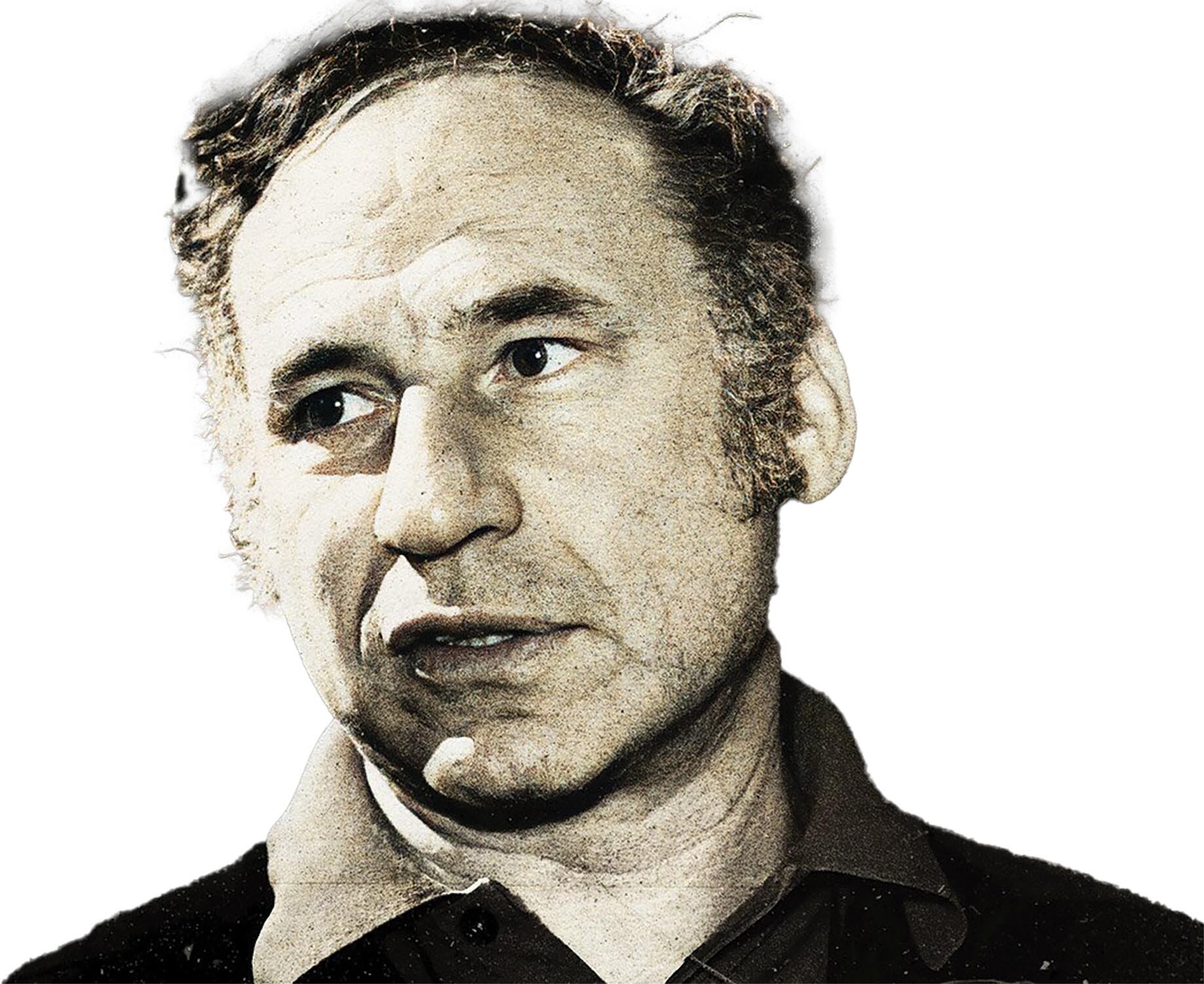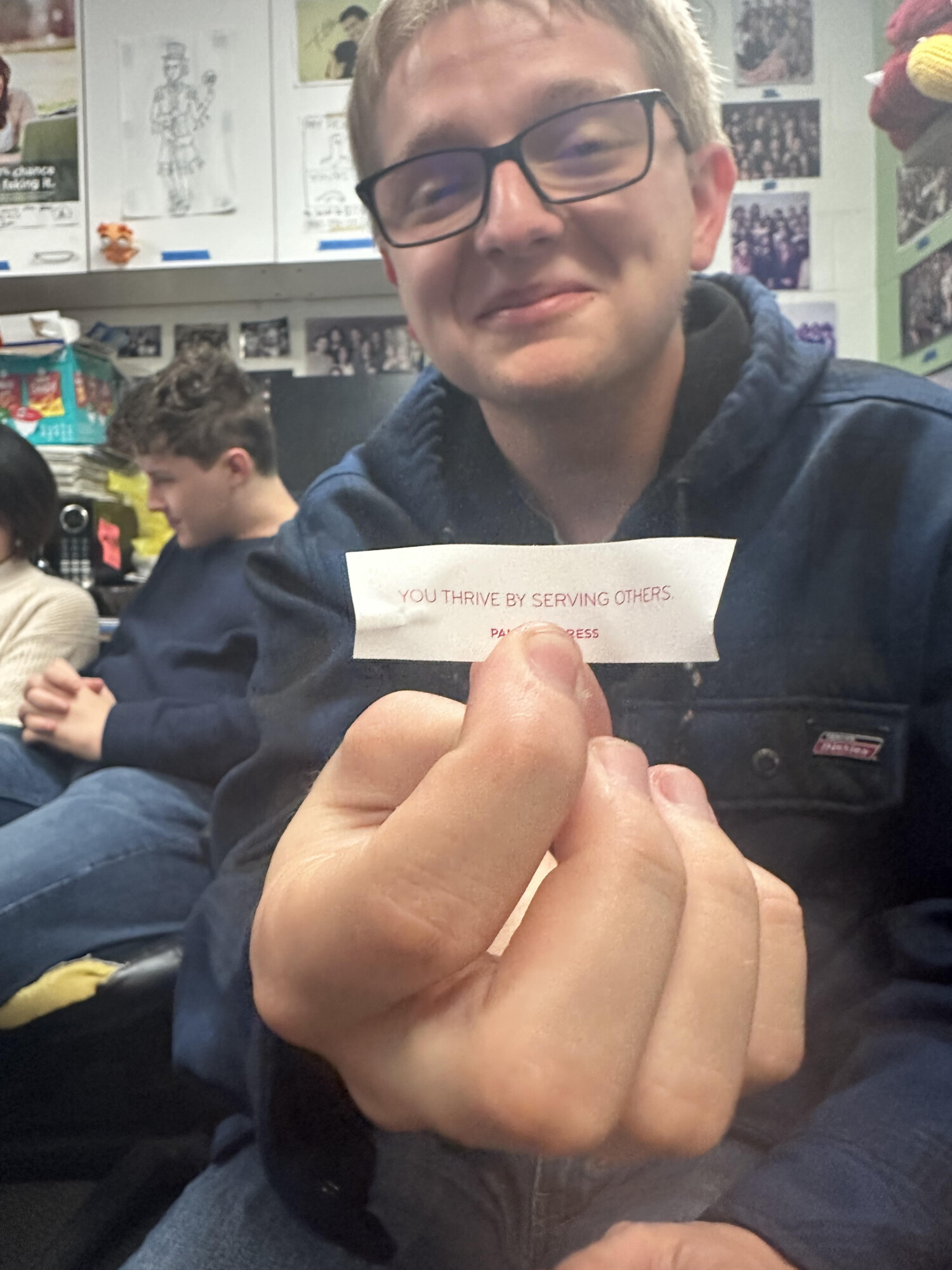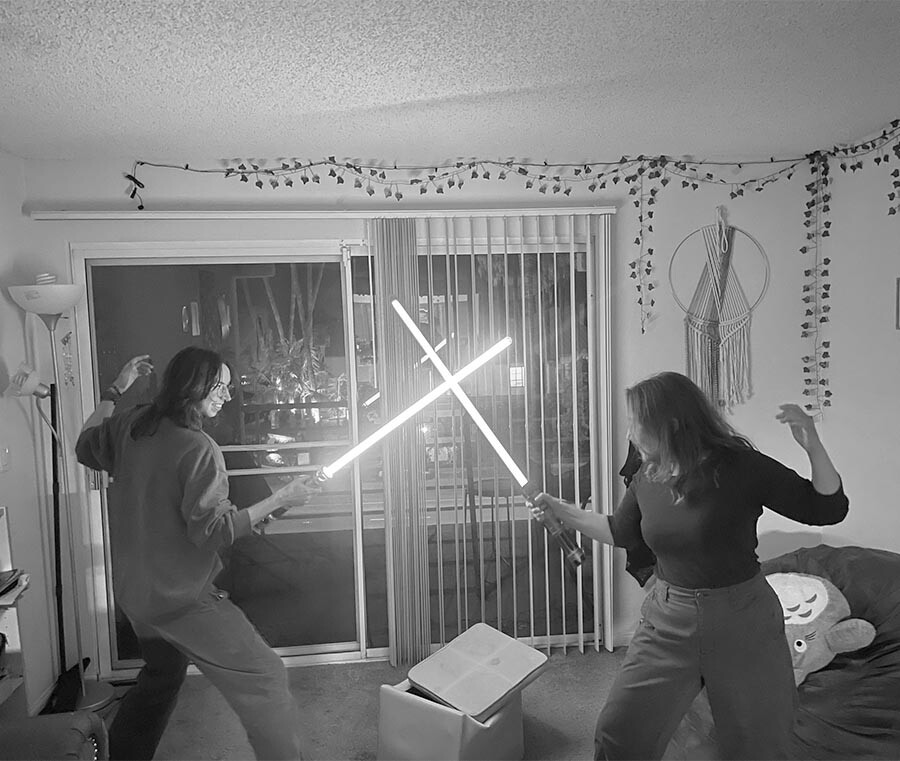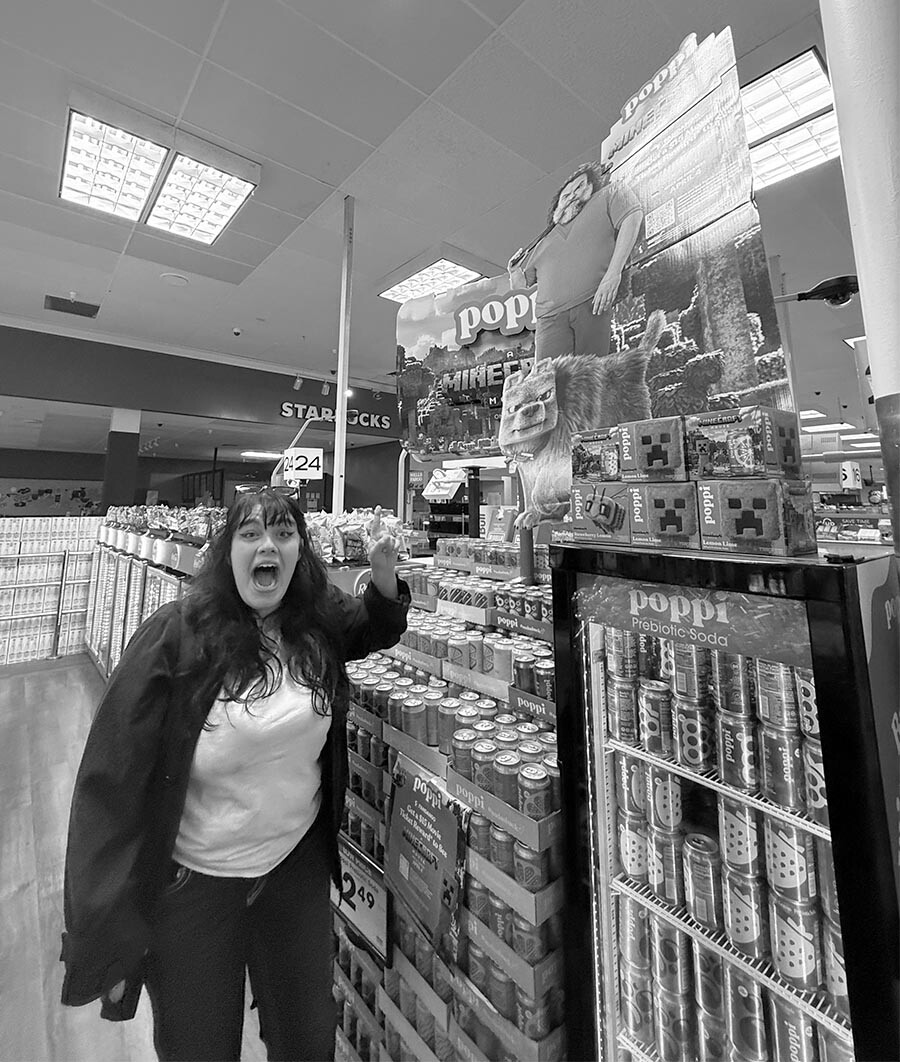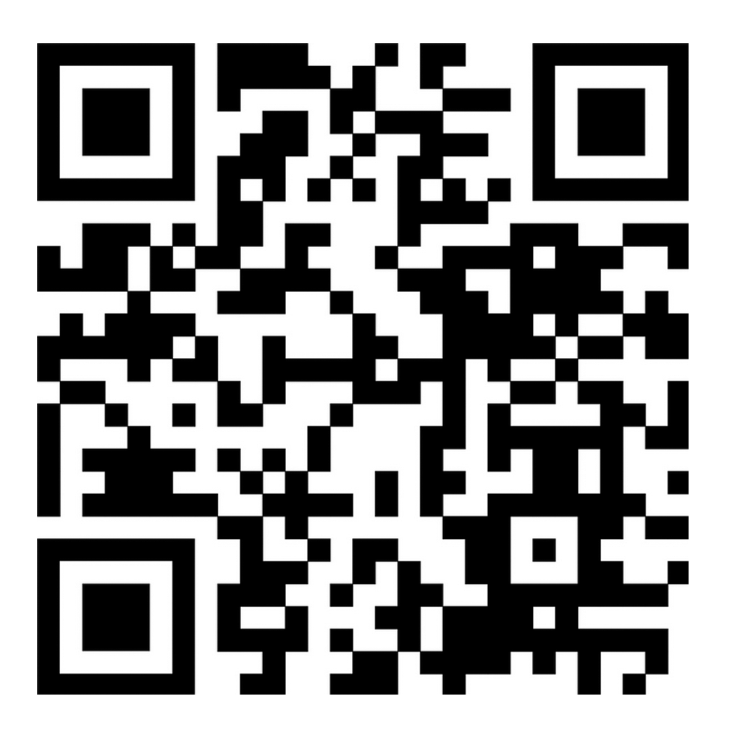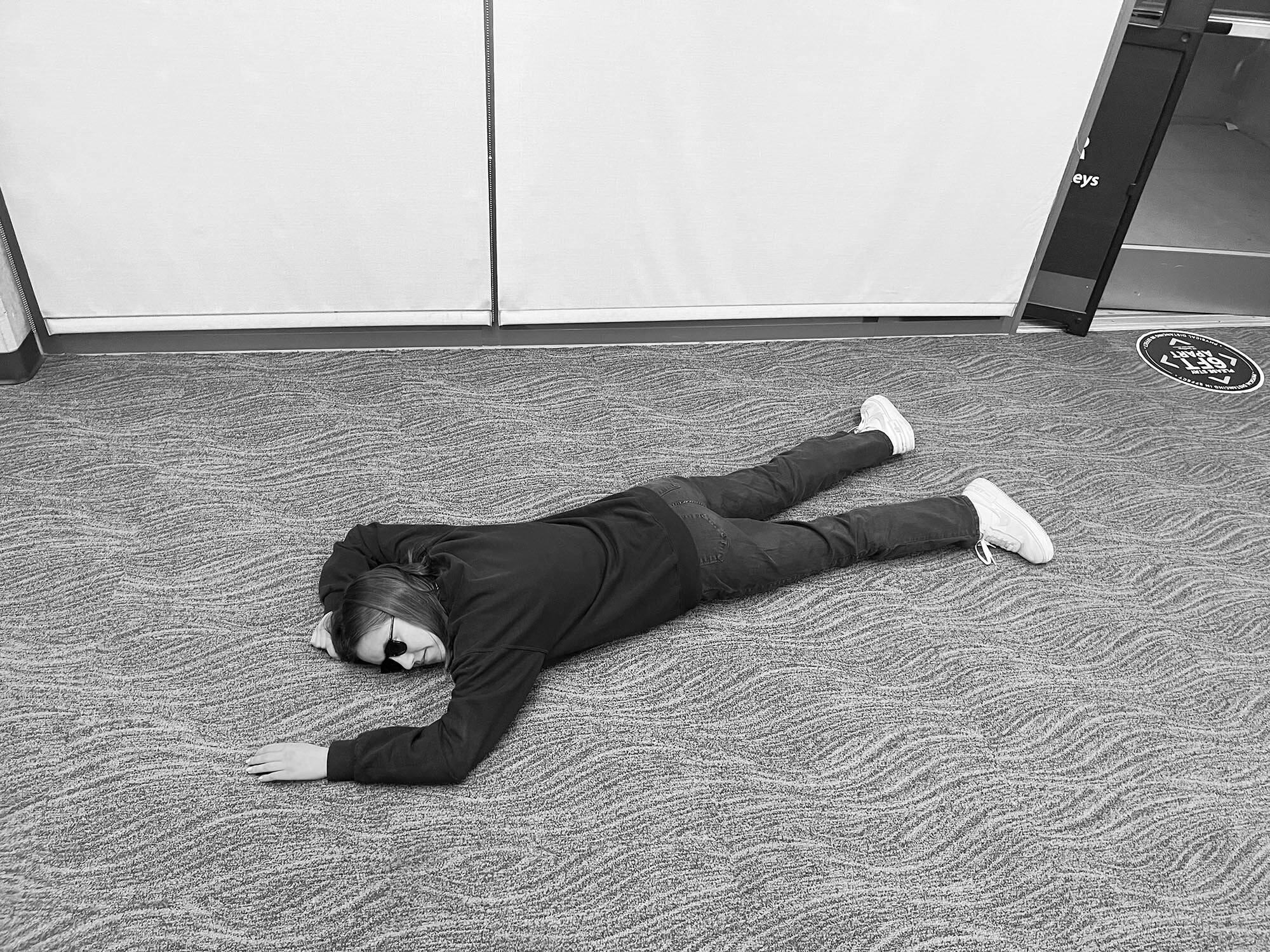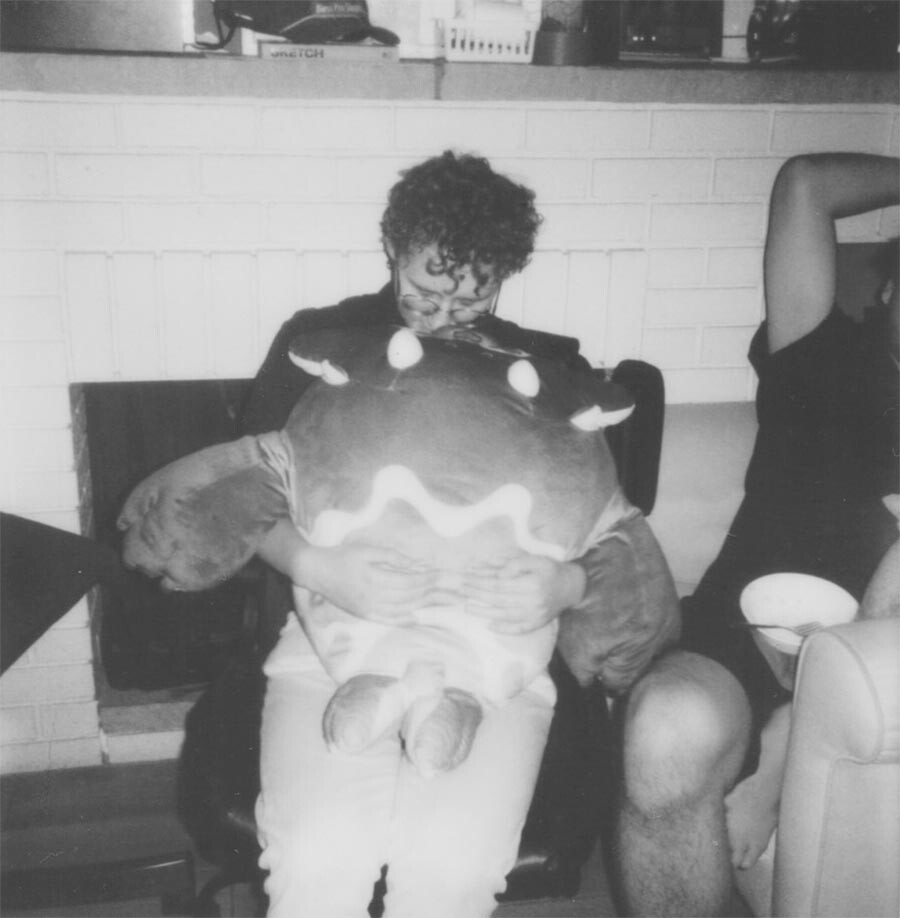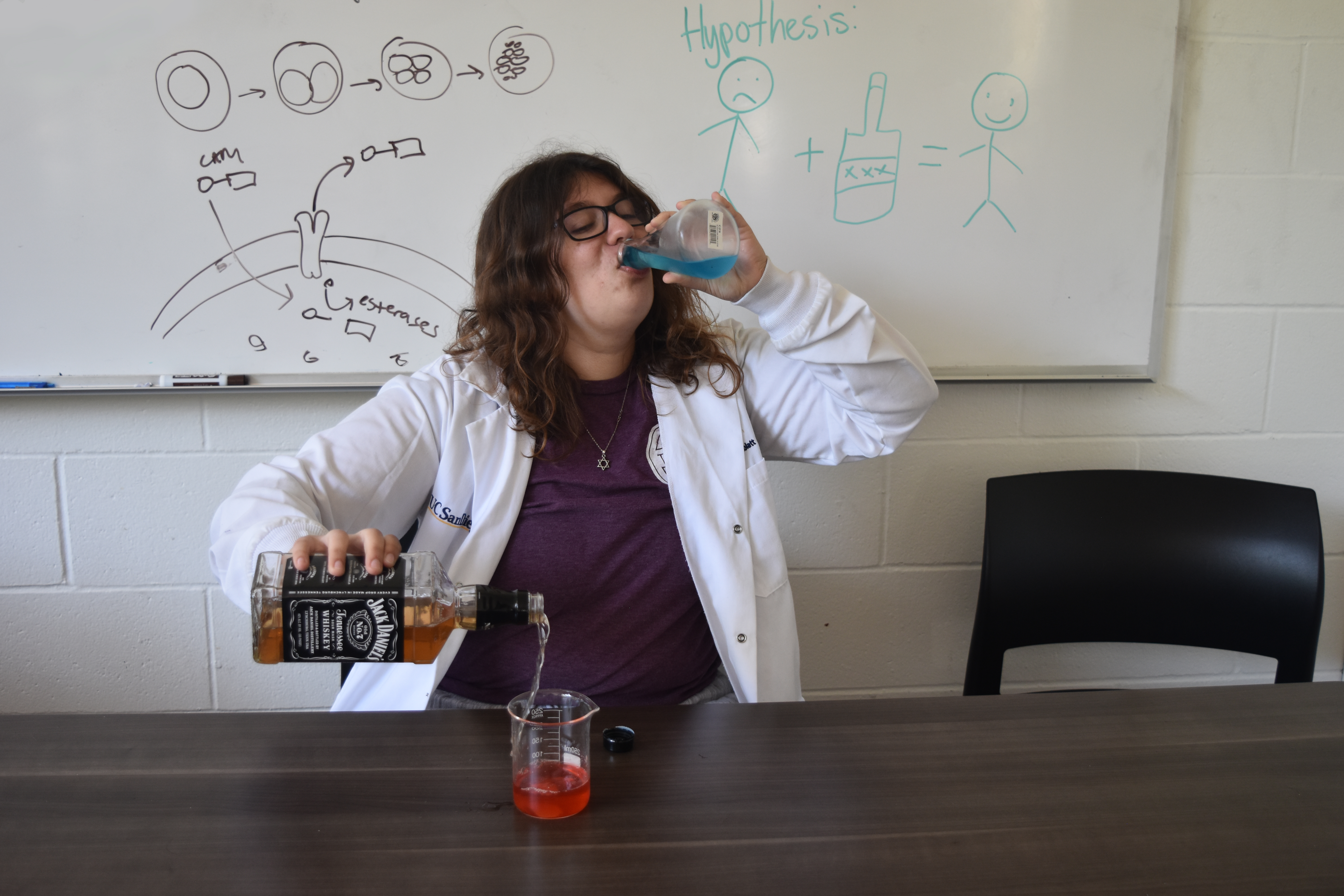
“All I need in life are my two best friends, Erlenmeyer and Jack,” said Rosenberg.
Photo by: Jessica Ma
UCSD student Sarah Rosenberg accepted her fate as a graduate student last Sunday during a brief moment of introspection that was squeezed in between finishing an experiment, submitting an essay she had almost forgotten about, and brushing her teeth. After much emotional turmoil and inner debate occurring predominantly in a 30-minute period while eating the first full meal she had in three days, Rosenberg finally concluded that she was destined to fulfill her dream of five to six more years of rigorous academic study with slim chances of being hired afterwards.
“Becoming a Ph.D. student just really seems like the best fit for me at this point in my life,” explained Rosenberg. “I mean, in what other situation am I going to be able to show off my ability to maintain a healthy, work-life balance while still being in a lab setting over 80 hours a week?” she continued as she took alternating swigs of a Yerba Mate energy drink and a locally brewed IPA.
“The key,” Rosenberg claimed, “is to remember that no matter how busy you may seem, there’s always time to take a quick two, maybe even three, second break and enjoy the good things in life, like fermented sugars — that and never sleeping. Never sleeping also helps.”
Rosenberg was reportedly drawn to biological research since her freshman year at UCSD when she started volunteering in a lab at Scripps Institute of Oceanography. She quickly realized that the incredibly small possibility of discovering something new about how living things function was all the motivation she needed to work diligently for the better part of her life; a life with an incredibly low success rate and absolutely no guarantee of financial stability.
“I am not naive to the fact that NIH and NSF funding rates paint a very bleak future for anyone looking for a research professorship,” stated Rosenberg in between nonchalantly pouring toxic chemicals in various beakers and eating a bagel. “However, I am extremely naive in that my positive attitude and raw passion might not be enough to ensure that I get reliable and steady funding throughout my career.”
In spite of her small chances of success, Rosenberg is hopeful that her multitasking capabilities will get her through graduate student and postdoctoral life until she can finally land a salaried position within the next 20 years. When asked about Rosenberg’s time-management techniques, friends and coworkers responded with, “Oh yeah, I’m pretty sure she doesn’t get enough sleep,” “I’ve actually never seen her sleeping,” and “At around 3 a.m. one night, I listened to her opinions on postmodern French philosophies concerning identity formation within a democratic state, and I’m pretty sure she was actually sleep-talking the whole time.”
When asked about prospects for potential backup plans, in case a career in academia doesn’t work out, Rosenberg proceeded to list a long string of local biotech companies offering reasonable starting salaries, benefits, and many opportunities for promotion. When asked why on earth these stable, fulfilling jobs were her second choice of profession, Rosenberg responded, “WHAT? I’M SORRY I CAN’T HEAR YOU OVER THIS MUSIC I’M LISTENING TO, BUT DO YOU WANT TO SEE THIS COOL MICROSCOPE IMAGE I TOOK THE OTHER DAY?”
At press time, Rosenberg was spotted shedding a single tear out of both overwhelming nostalgia and excitement about her future while looking through a microscope, accidentally dipping a granola bar into a beaker of salt water, and brushing her hair.
Hannah Rosenblatt is an MQ alum. She was the 2017-18 Editor-in-Chief.

